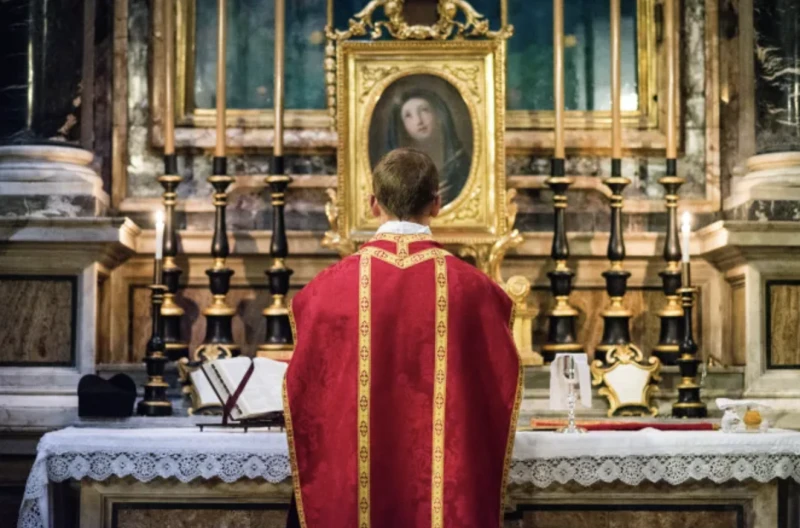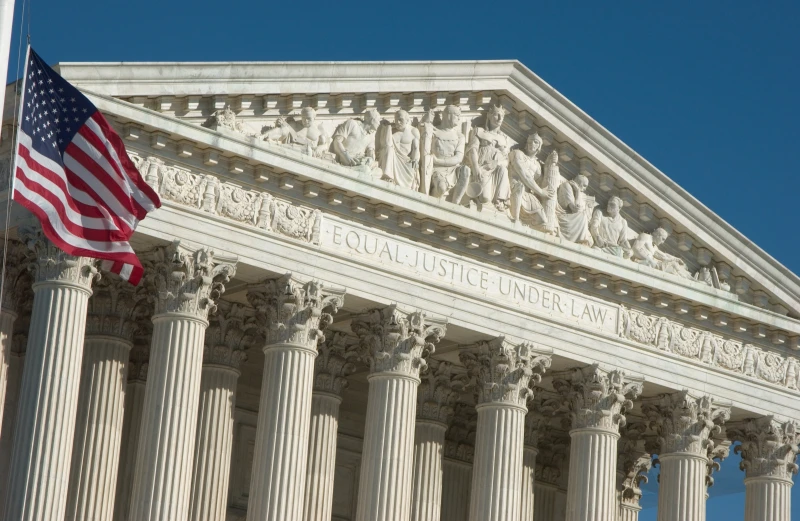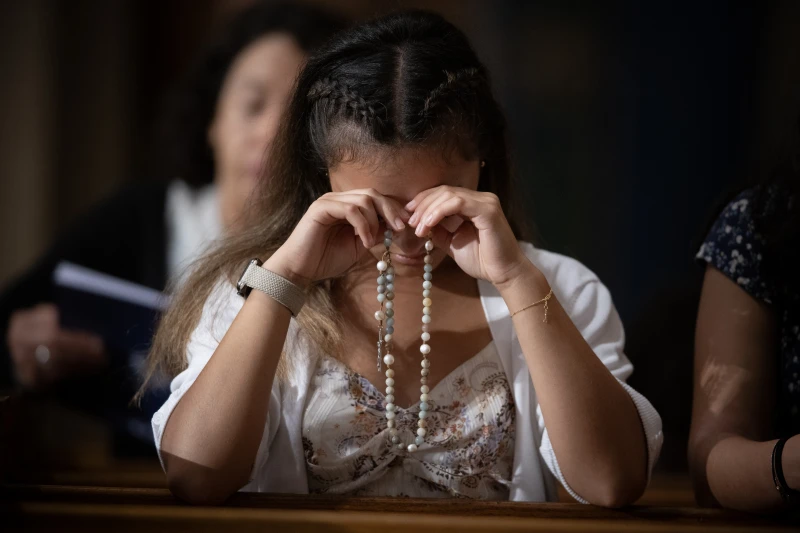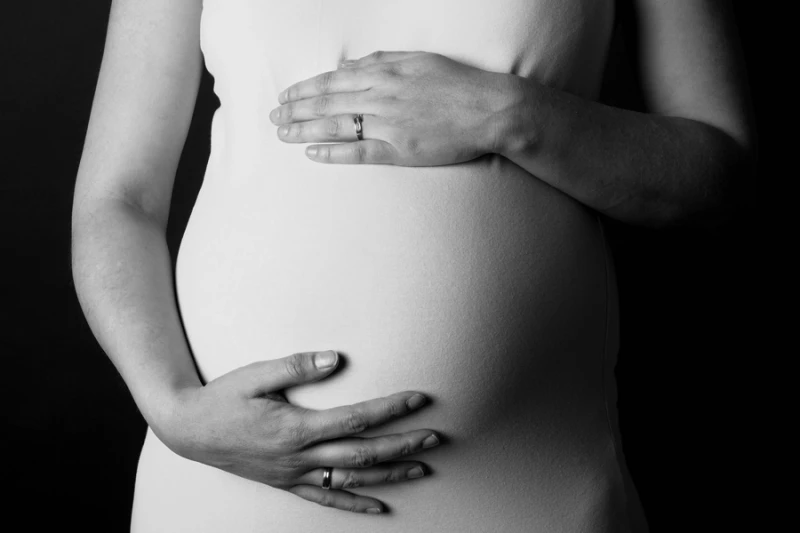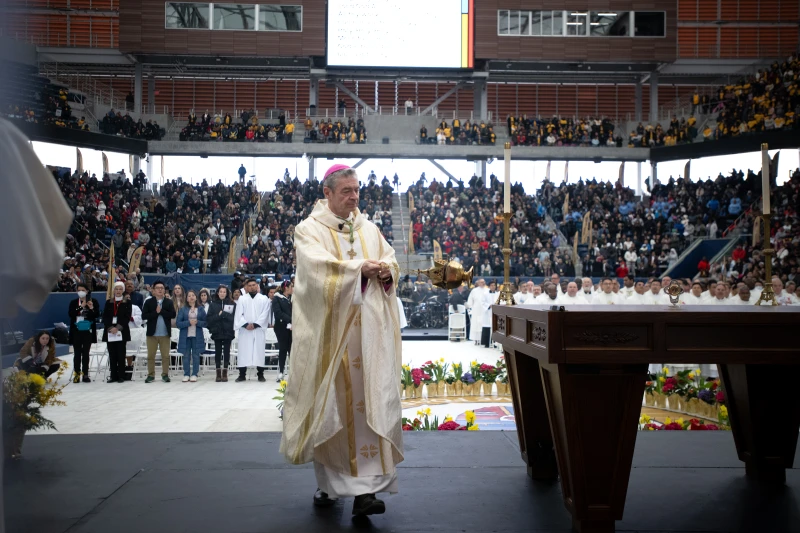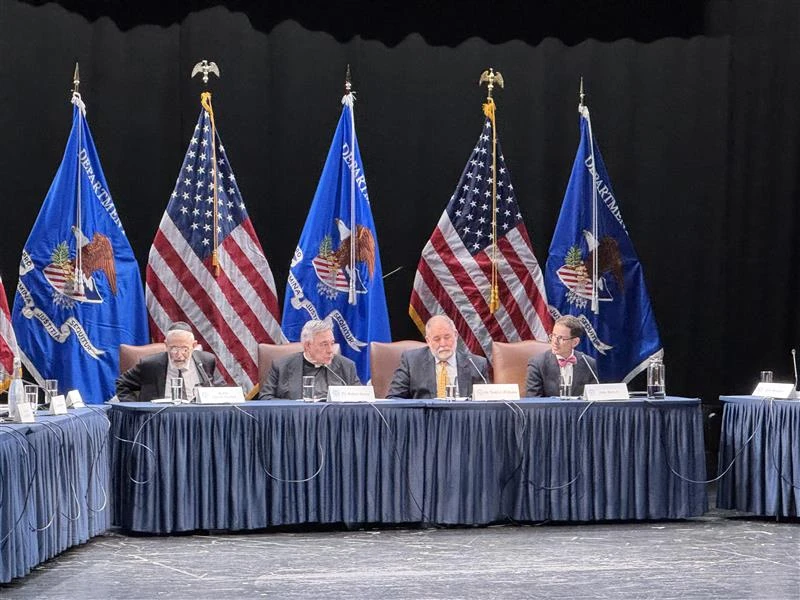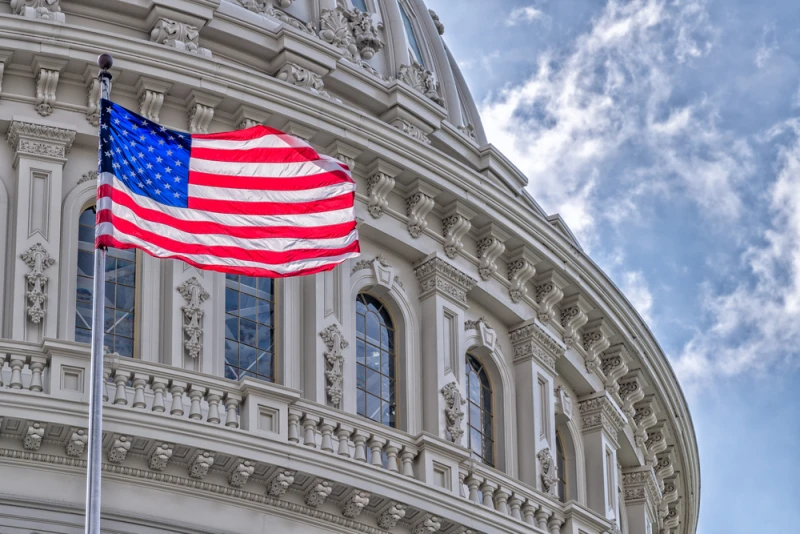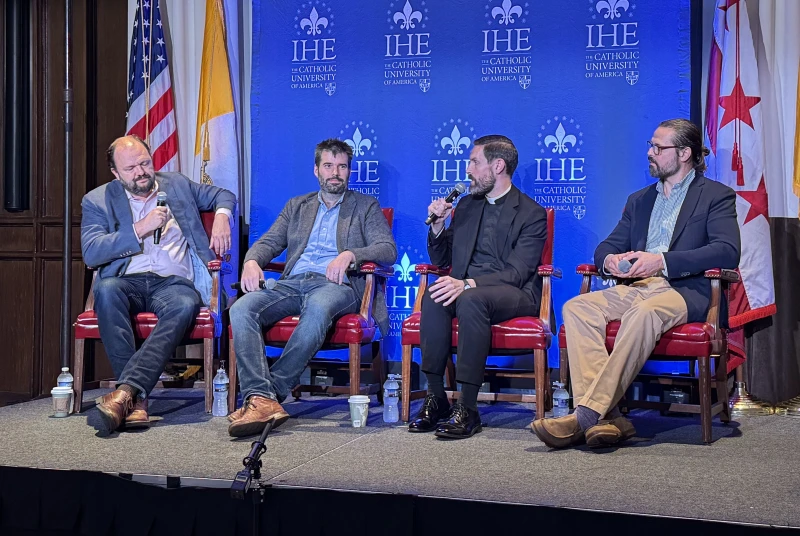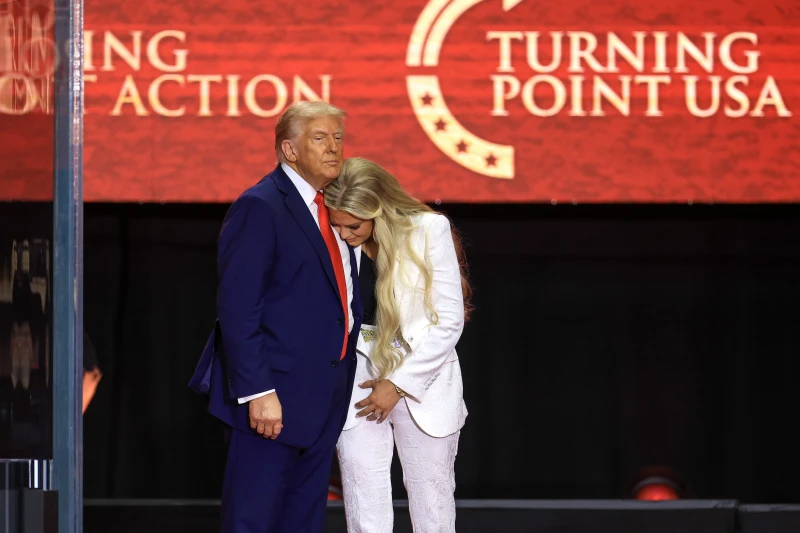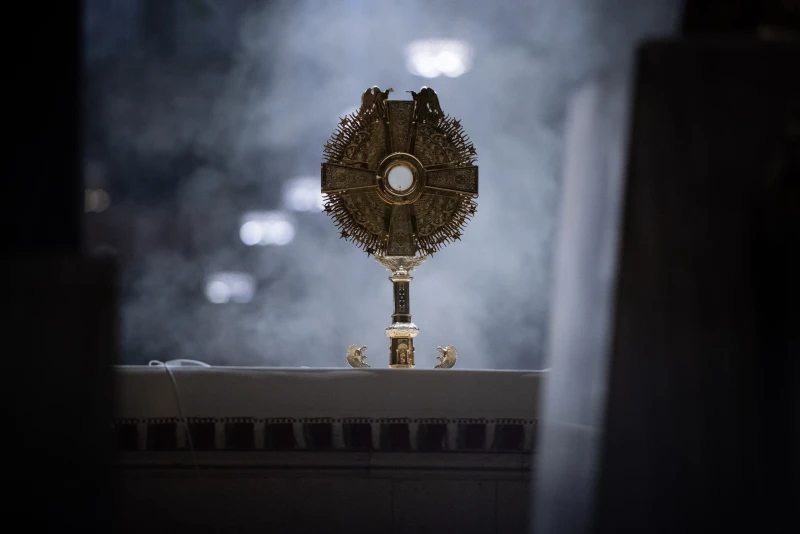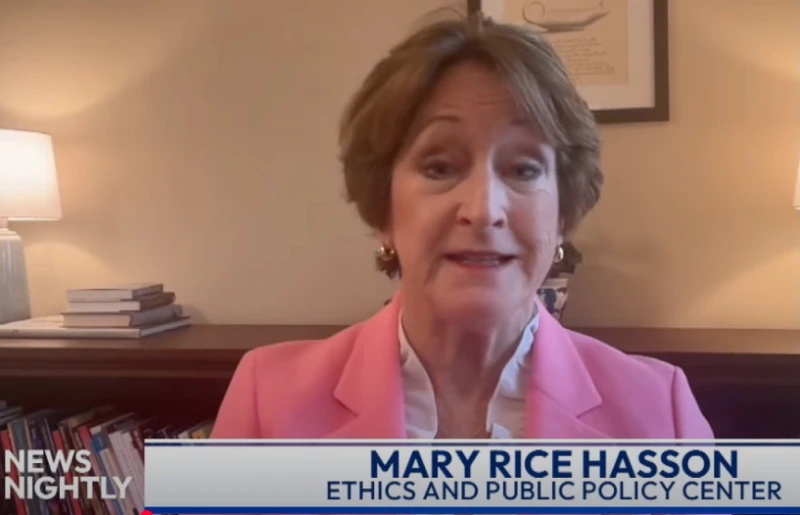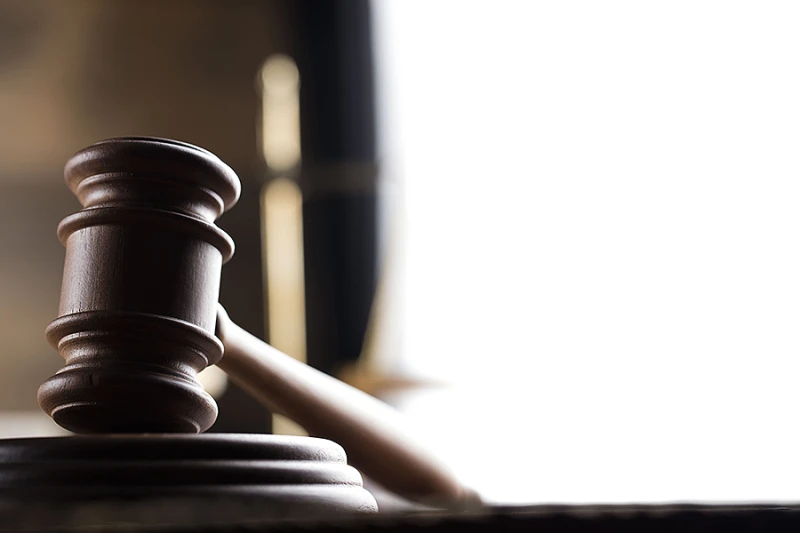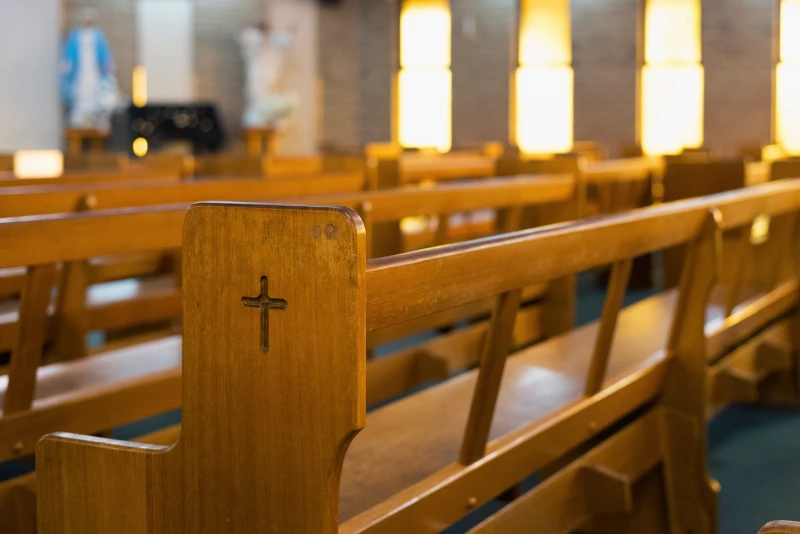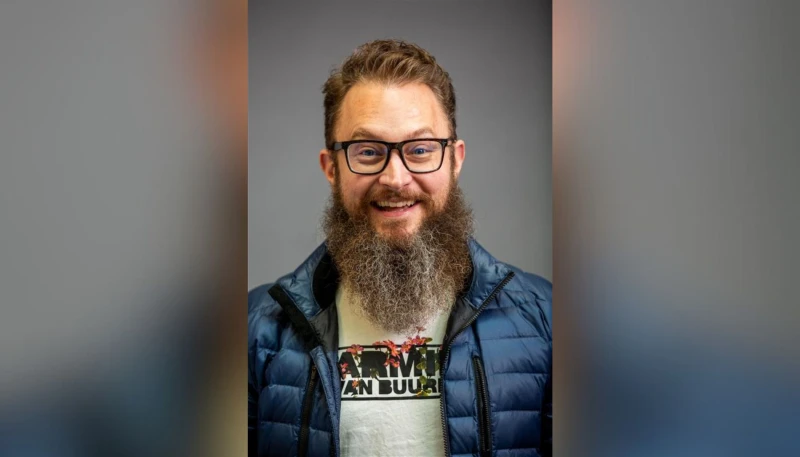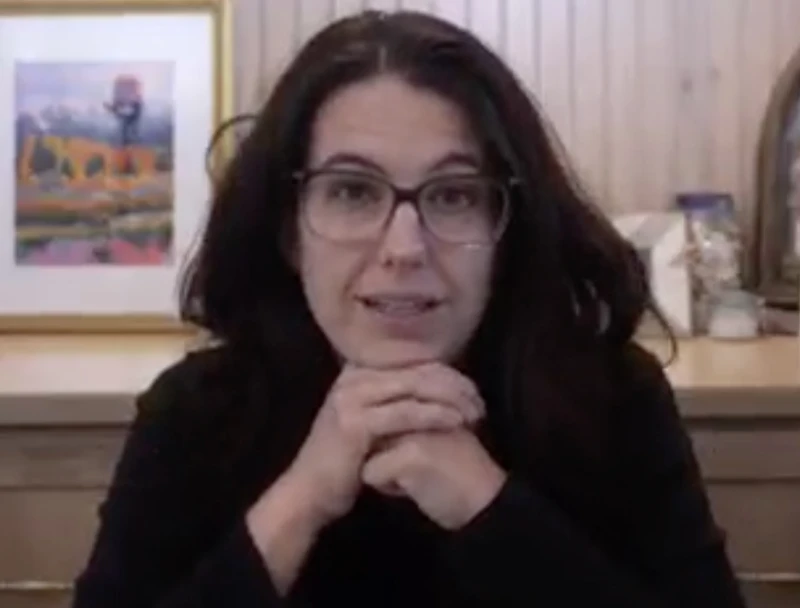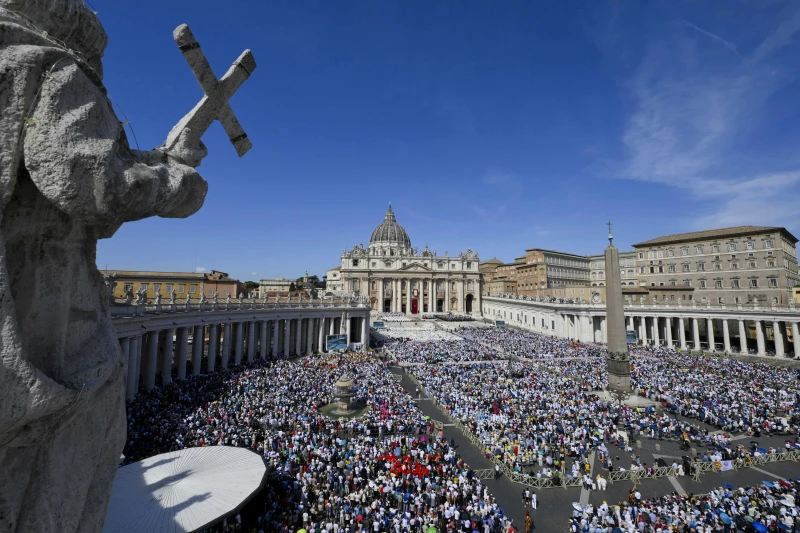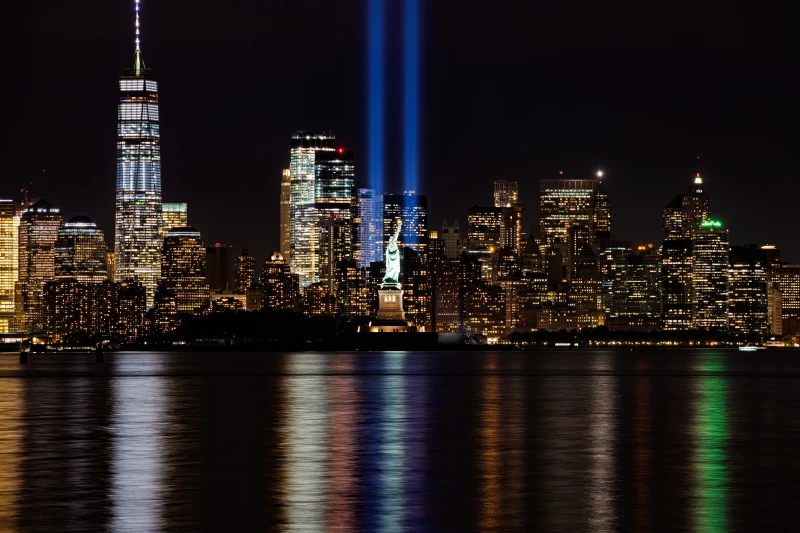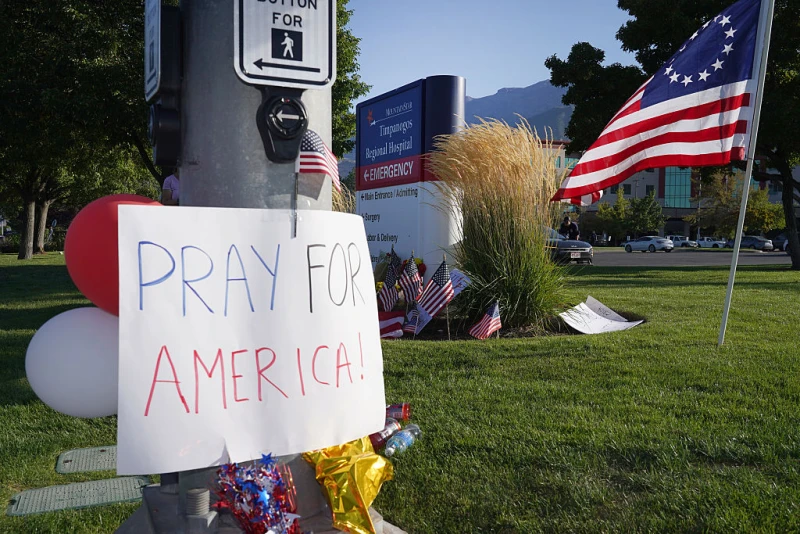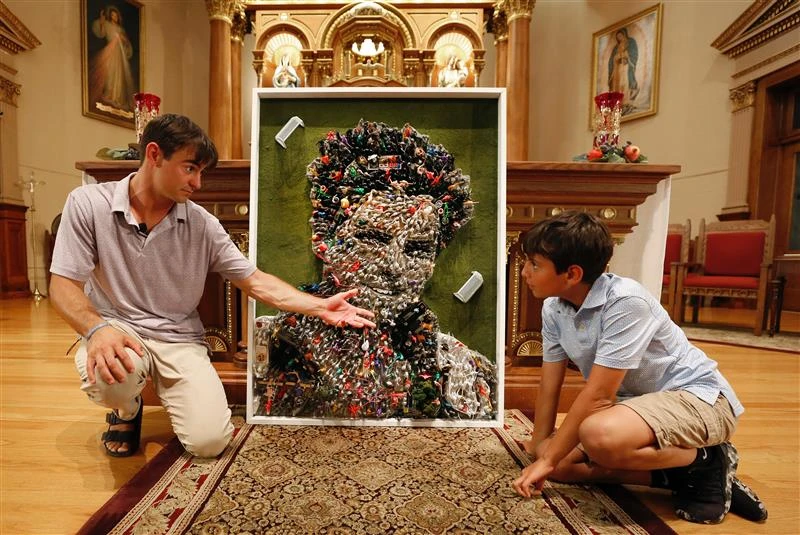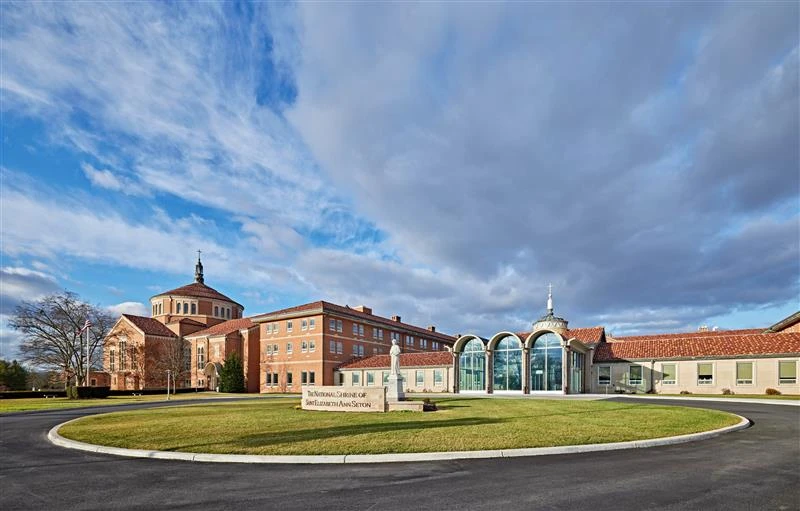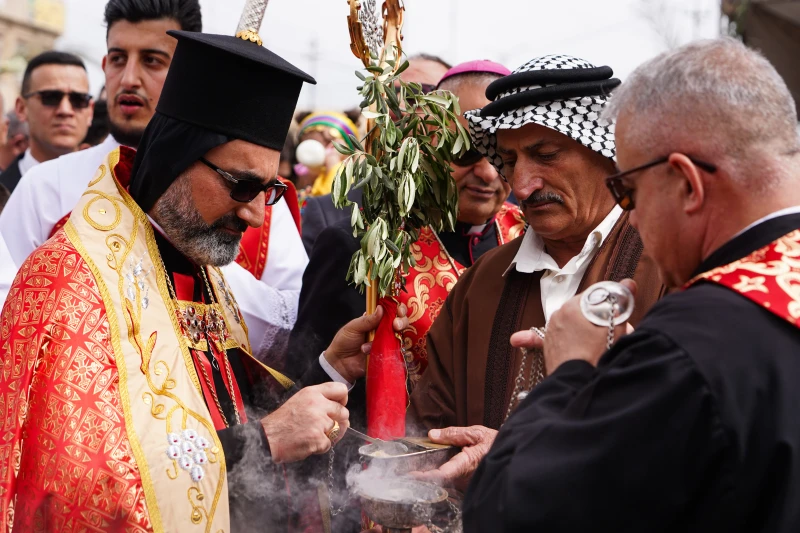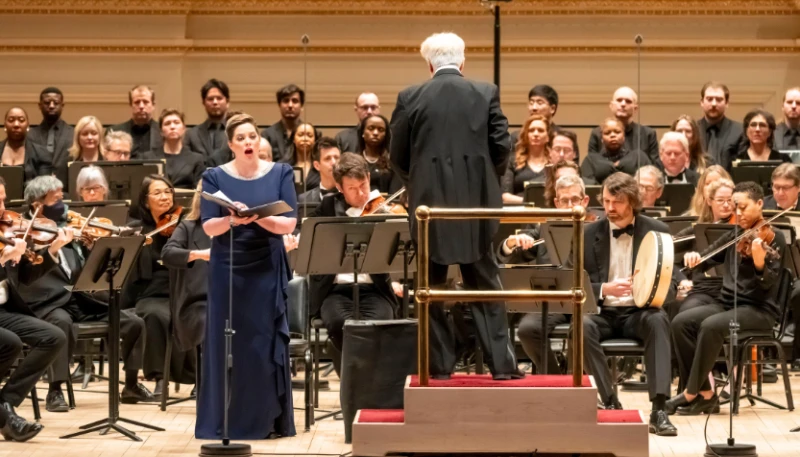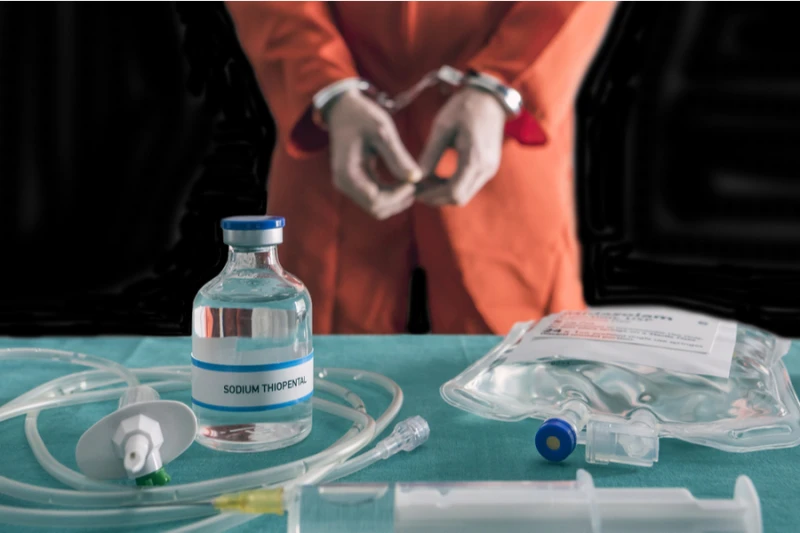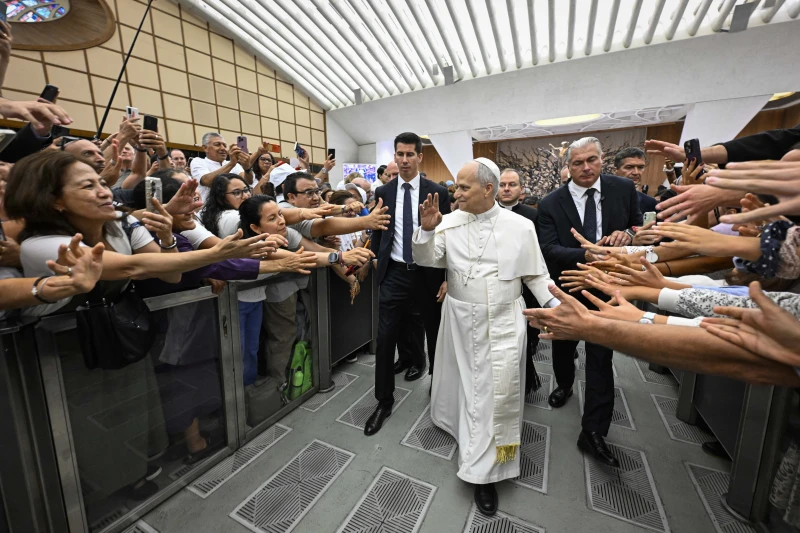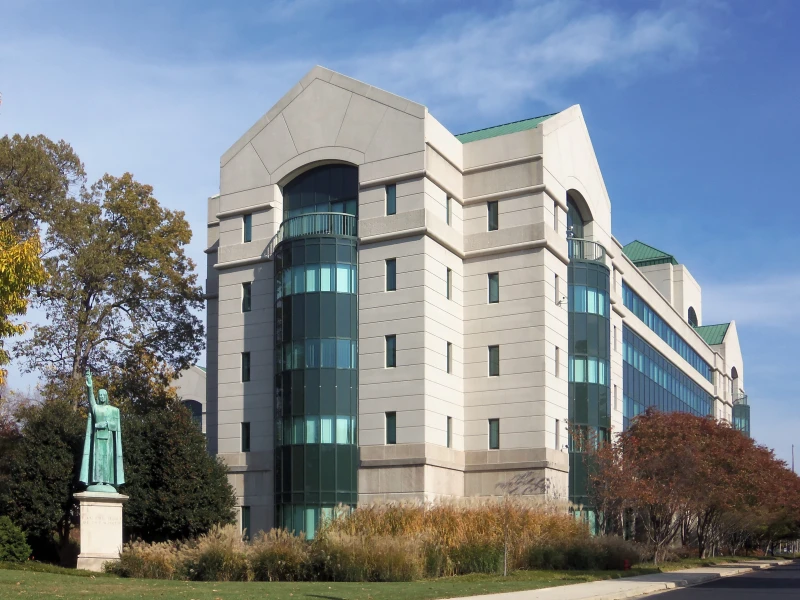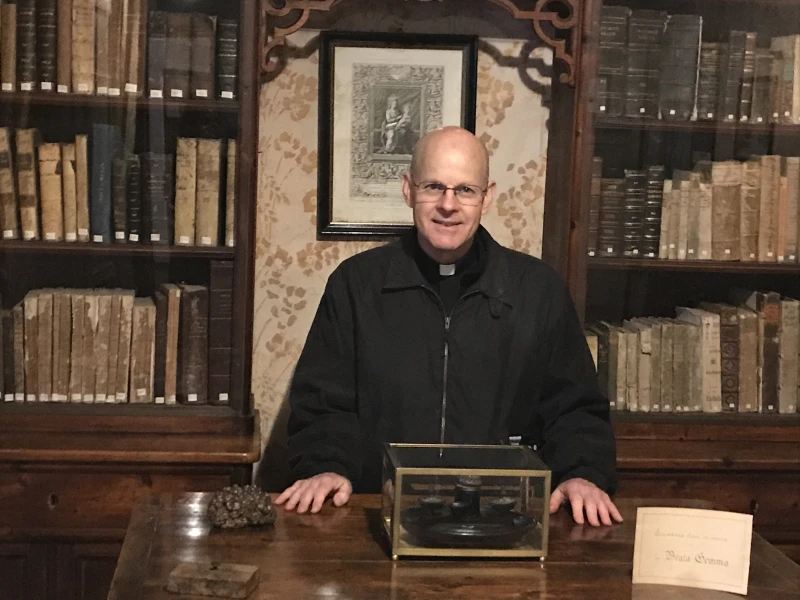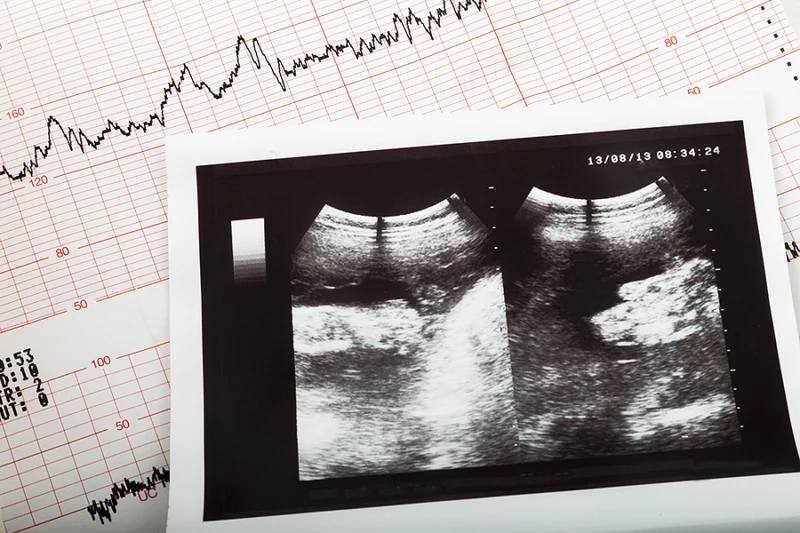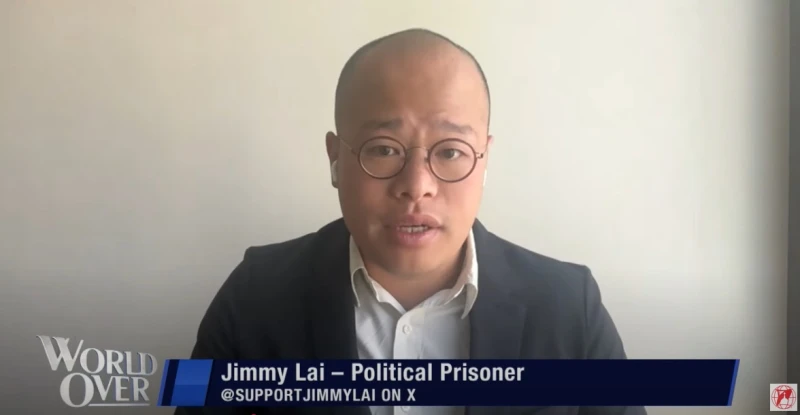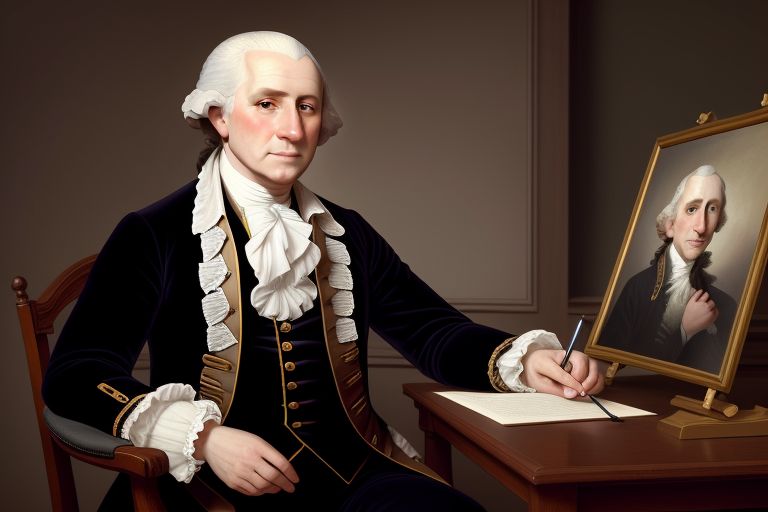 null / Credit: felipe caparros/Shutterstock
null / Credit: felipe caparros/Shutterstock
CNA Staff, Aug 30, 2025 / 09:00 am (CNA).
The United States is seeing the highest number of executions in more than a decade, with 30 executions so far in 2025.
CNA has released three new interactive maps to show where each state in the U.S. stands on life issues — the protection of unborn life, assisted suicide, and the death penalty. The maps will be updated as new information on each issue becomes available.
Below is an analysis of the map that shows where each state stands on death penalty laws as of August 2025.
The death penalty in the U.S.
The United States is split on the death penalty, which is also known as capital punishment. Twenty-three states have the death penalty, while 23 states have abolished it. In the remaining four states, executions have been temporarily paused via executive action, but the death penalty has not been abolished.
Of the states that have abolished the death penalty, Michigan took the lead, becoming the first state to abolish the death penalty in 1847. Alaska and Hawaii — both newer states — have never had the death penalty.
Five states (Idaho, Mississippi, Oklahoma, South Carolina, and Utah) allow the death penalty via firing squad as an alternative to lethal injection.
The federal death penalty can be implemented for certain federal crimes in all 50 states as well as U.S. territories.
A total of 16 federal executions have occurred since the modern federal death penalty was instituted in 1988.
The federal death penalty was found unconstitutional in the U.S. Supreme Court’s decision Furman v. Georgia in 1972, but it was later reinstated for certain offenses and then expanded by the Federal Death Penalty Act of 1994.
In 2024, President Joe Biden commuted the sentences of 37 men but left three men on death row.
Where does your state stand on the death penalty?
Alabama: The death penalty is legal in Alabama. The state has one of the highest per capita execution rates in the nation, with 81 people executed since 1976.
Alaska: Alaska has never had the death penalty. Capital punishment was abolished by the territorial legislature two years before Alaska became a state. Hawaii and Alaska are the only states to have never had capital punishment in state law.
Arizona: The death penalty is currently legal in Arizona but has been paused for various reasons throughout the state’s history. In 2025 executions resumed in Arizona following a three-year pause.
Arkansas: Arkansas allows the death penalty if a defendant is found guilty of capital murder, defined as the premeditated and deliberate death of another person. In 2025, Arkansas became the fifth state to use nitrogen gas for executions.
California: California has had a moratorium on its death penalty since 2019.
Colorado: In 2020, Colorado abolished the death penalty.
Connecticut: In 2012, Connecticut abolished the death penalty for future crimes.
Delaware: The Delaware Supreme Court found capital punishment to be unconstitutional in 2016, and in 2024 Delaware repealed the state’s death penalty laws.
District of Columbia: The District of Columbia does not have a death penalty. It was repealed by the D.C. Council in 1981.
Florida: Florida allows the death penalty for first-degree murder and other capital felonies, including sexual battery. Gov. Ron DeSantis in 2023 ended requirements for juries to vote unanimously for capital punishment. DeSantis also signed legislation allowing capital punishment in the case of sexual battery of children.
Georgia: Georgia law allows the death penalty in cases where the defendants are at least 17 years old and commit certain homicides; for instance, if the method of homicide was depraved or if the defendant committed the murder in a public place threatening other people.
Hawaii: Hawaii abolished the death penalty in 1957 when it was still a territory, prior to becoming a state. Hawaii and Alaska are the only states to have never had capital punishment in state law.
Idaho: Idaho is one of five states to allow the death penalty by firing squads. In 2023, the state allowed this method due to a shortage of lethal-injection drugs. The method can be used if the state cannot obtain lethal-injection drugs.
Illinois: Illinois abolished the death penalty in 2011.
Indiana: In Indiana, the death penalty is legal in some murder cases with “aggravating circumstances” for someone 18 or older who is not intellectually disabled. Lethal injection is the only method of execution that is legal.
Iowa: Iowa abolished the death penalty in 1965. Though some capital punishment proponents have attempted to bring it back over the years, none have succeeded.
Kansas: The death penalty is legal in Kansas, but the state has not executed anyone since 1994. Kansas has abolished and reinstated the death penalty several times.
Kentucky: The death penalty is legal in Kentucky for those convicted of murder with aggravating circumstances.
Louisiana: The death penalty is legal in Louisiana.
Maine: Maine abolished the death penalty in 1887.
Maryland: Maryland abolished the death penalty in 2013.
Massachusetts: Massachusetts abolished the death penalty in 1984.
Michigan: Michigan was the first state — and the first government in the English-speaking world — to abolish the death penalty. It abolished capital punishment in its constitution in 1847.
Minnesota: In 1911, Minnesota abolished the death penalty via the state Legislature.
Mississippi: Mississippi is one of five states to allow the death penalty by firing squad.
Missouri: Capital punishment is legal in Missouri, typically for first-degree murder with aggravating factors.
Montana: The death penalty is legal in Montana.
Nebraska: Though Nebraska lawmakers have debated abolishing the death penalty in recent years, it remains legal.
Nevada: The death penalty is legal in Nevada in first-degree murder cases with at least one aggravating circumstance.
New Hampshire: New Hampshire abolished the death penalty in 2019 after the state Legislature overrode the governor’s veto of the repeal bill.
New Jersey: New Jersey abolished the death penalty in 2007.
New Mexico: New Mexico abolished the death penalty in 2009.
New York: In 2004, the New York Court of Appeals declared New York’s death penalty law unconstitutional.
North Carolina: The death penalty is legal in North Carolina for first-degree murder cases with an aggravating factor. The state law has 11 aggravating factors, including for sexual offenses, cruelty, and murder of a witness or law enforcement officer.
North Dakota: In 1973, North Dakota abolished the death penalty.
Ohio: In 2020, Gov. Mike DeWine declared a moratorium on the death penalty in Ohio.
Oklahoma: Oklahoma has the highest per capita state execution rate, with 127 executions from 1976–2024. Oklahoma is one of five states to allow capital punishment by firing squad.
Oregon: Executions have been paused as Oregon has had a moratorium on the death penalty since 2011.
Pennsylvania: Pennsylvania has had a moratorium on executions since 2015.
Rhode Island: Rhode Island abolished the death penalty in 1852. The state briefly reinstated it in 1872, but it never carried out another execution.
South Carolina: South Carolina is one of five states to allow the death penalty by firing squad.
South Dakota: In South Dakota, the death penalty is legal only in cases where someone dies. Those who are declared insane or those with mental disabilities cannot be sentenced to capital punishment.
Tennessee: The death penalty is legal in Tennessee. In 2022, Gov. Bill Lee placed a moratorium on capital punishment for review of lethal injection protocols, but executions recently reopened.
Texas: Texas has the second-highest per capita state execution rate, with 101 executions from 1976–2024.
Utah: Utah is one of five states to allow the death penalty by firing squad, and it has been requested twice in recent years. States with this option usually allow defendants to choose, as some say it is less painful and more instantaneous than lethal injection, which at times has taken hours to cause death.
Vermont: Vermont abolished the death penalty in 1972 after the U.S. Supreme Court — for a brief period of time — declared the punishment unconstitutional in Furman v. Georgia.
Virginia: Virginia abolished the death penalty in 2021.
Washington: In 2018, the Washington state Supreme Court ruled that the death penalty was unconstitutional, citing racial bias and arbitrariness. In 2023, capital punishment was formally removed from state law.
West Virginia: West Virginia abolished the death penalty in 1965, though there have been attempts to reinstate it in recent years.
Wisconsin: Wisconsin abolished the death penalty in 1953, one of the first states to do so.
Wyoming: The death penalty by lethal injection is legal in Wyoming. It is not allowed if the person is mentally incapacitated or pregnant.
Federal: The death penalty is legal on a federal level in the United States of America. The Trump administration restored the death penalty on Jan. 20, 2025, via an executive order.
Catholic Church teaching on the death penalty
In 2018, the Vatican developed the Church’s teaching on the death penalty, with Pope Francis updating the Catechism of the Catholic Church to reflect that the death penalty is “inadmissible” in the contemporary landscape.
Previous teaching in the catechism issued during the pontificate of St. John Paul II permitted the death penalty in “very rare” cases, saying that “cases of absolute necessity for suppression of the offender ‘today … are very rare, if not practically nonexistent” (CCC, 2267, pre-2018).
Read More
